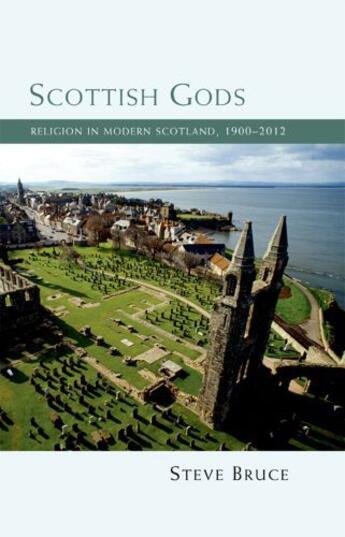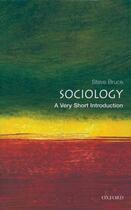-
Nombre de pages : (-)
-
Collection :
(-)
-
Genre :
(-)
-
Thème :
Non attribué
-
Prix littéraire(s) :
(-)
Résumé:
How much has Scotland's religious landscape changed in the last century, and why?
Steve Bruce here presents a highly readable account of the changing nature and place of religion in Scotland in an increasingly irreligious society. In 1900 Scotland was a largely Presbyterian country and the... Voir plus
How much has Scotland's religious landscape changed in the last century, and why?
Steve Bruce here presents a highly readable account of the changing nature and place of religion in Scotland in an increasingly irreligious society. In 1900 Scotland was a largely Presbyterian country and the Christian churches were a major social force. Now less than 10 per cent of Scots attend church. As religion has declined, it has become more varied: Catholicism has grown as have Charismatic Christian fellowships; Buddhist and Hindu themes have easternised our religious vocabulary; a significant Muslim population has become established; and a notable number of Scots now pursue personal spiritual interests in forms which would once have been dismissed as pagan. Both this decline and the diversification deserve explanation.
The Protestant-Catholic divide has faded but Scots have new controversies over the proper public place of religion in the light of growing secularization and diversification. The growth of individual liberty and increasing cultural diversity combine to weaken all shared beliefs by changing religion from a social matter into a private personal concern. All religious groups are faced with the choice of either accommodating that trend and losing their distinctiveness or resisting it and making membership too costly for most potential adherents. This radical remapping of Scotland's religious character is a fascinating summary of a remarkable career of research and analysis by one of our leading social historians.
Topics include: Lewis, Orkney and Shetland compared; the integration of the Irish; the growth and decline of the Catholic Church; Scotland Orange and Protestant; the Post-War Kirk; factionalism in the conservative Presbyterian churches; the failure of the charismatic movement in Scotland; Samye Ling and Buddhism; Findhorn and New Age spirituality; Scots Muslims; and arguments over the ordination of women and gay rights.
Donner votre avis















